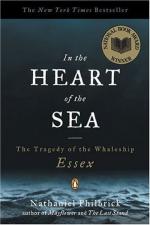|
This section contains 843 words (approx. 3 pages at 300 words per page) |

|
Fate vs Free Will in Greek Tragedies
Summary: Greek tragedy helps us understand fate and free will in our lives and that free will is something you have to choose. Greek tragedy relies on the rise and fall of the protagonist. This fall is usually caused by what seems to be the protagonist's free will, but the fate is actually decided and delivered by the gods.
Throughout life people have laid the blame on someone else, so the question to ask is, is life decided for us or do we really have freewill? Freewill is voluntary, it's our ability to choose on our own accord, our ability to control the events in our lives unconstrained by external powers. But does it exist? A quote by McCallum (2005) suggests it doesn't, "Greek tragedy shows man at the whim of the gods." This suggests that the gods, based on their desires and impulses, manipulate man. This is as if mankind were at their disposal, as if they where just dolls in the overall scheme of things. So if freewill doesn't exist what does? Fate is a power that is thought to predetermine all events and is impossible to resist therefore what will inevitably happen. It implies that people have a destiny.
Greek tragedy relies on the rise...
|
This section contains 843 words (approx. 3 pages at 300 words per page) |

|


